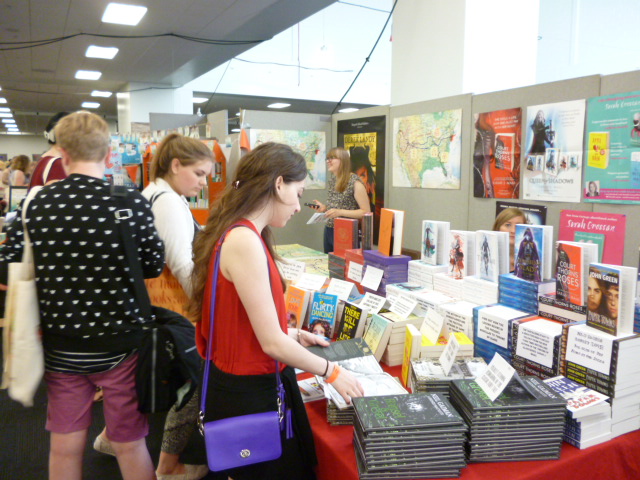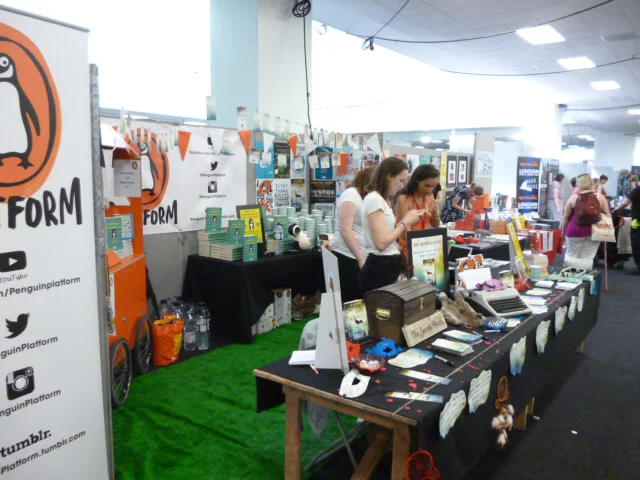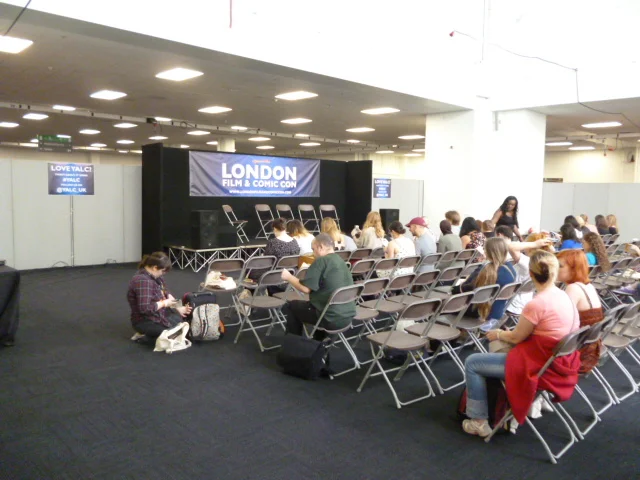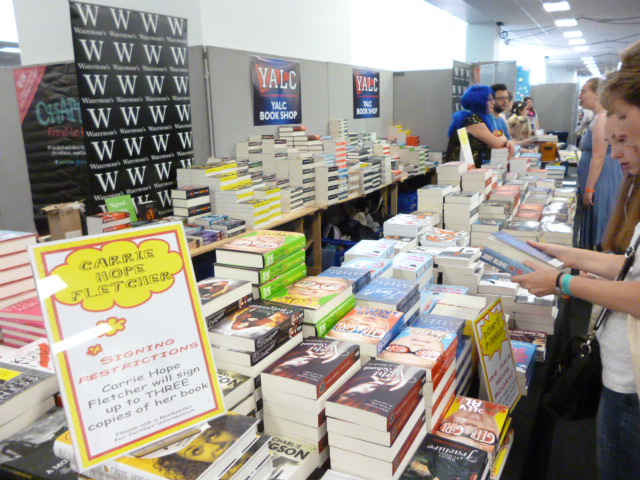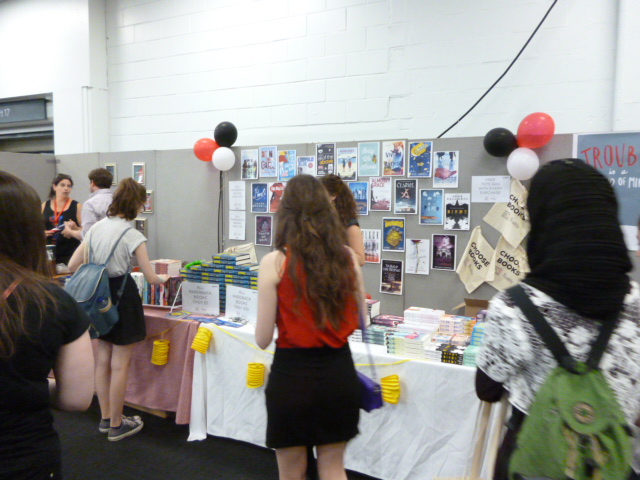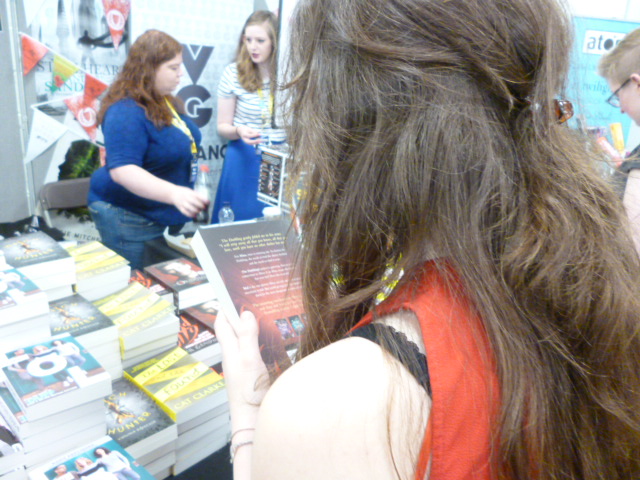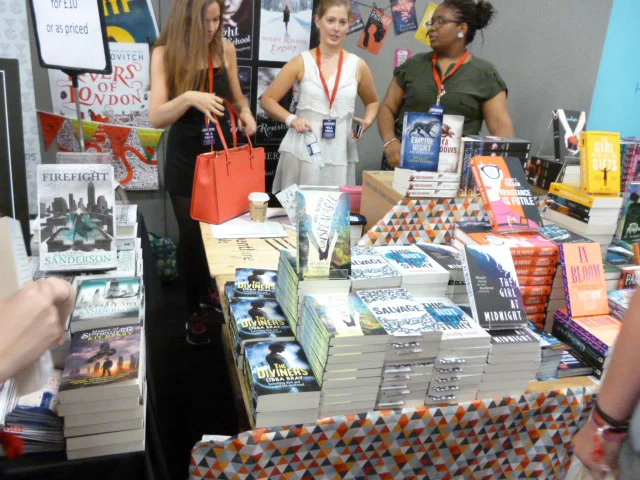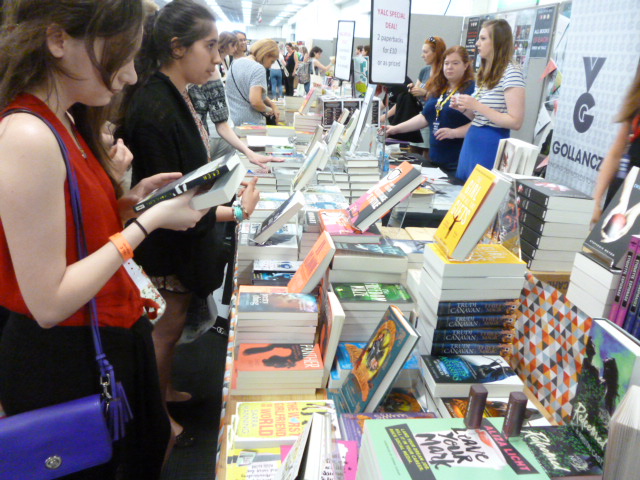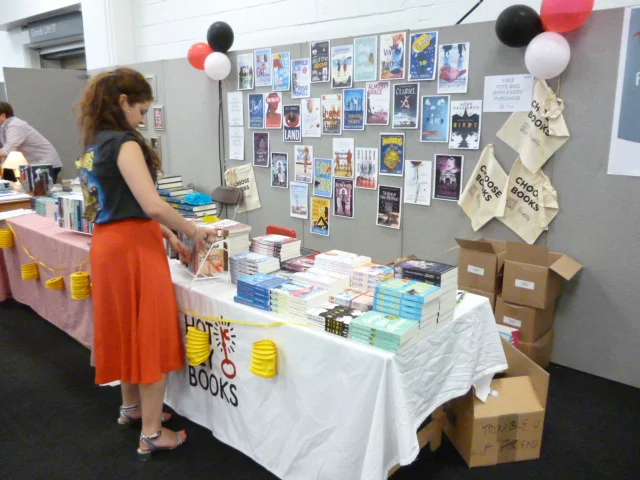Day two is a wrap! And because I know myself, I left in the afternoon because 1. I'm already exhausted and want to have all my energy for tomorrow and 2. IT WAS SO BUSY. Honestly, never go to LCC on a Saturday if you value your life.
So what did I do today? I attended 3 talks: YA: The Next Generation, Publishing 101 and Being A Girl. AND I took more pics of YALC, so if you're just here to see those - there's a little collage/gallery thing at the end of this article.
I started the day with YA: The Next Generation talk, which featured Alice Oseman (of the AMAZING Solitaire), Lucy Saxon (who was in an amazing cosplay outfit), Helena Coggan and Taran Matharu - all young published authors talking about what it means to be a writer before you're even in your 20s!
So as usual, all the authors introduced themselves and then said how they got into writing and interestingly enough, both Alice and Taran's stories started during Nanowrimo. This again shows how important projects like that are to get people writing. Even though Alice only wrote 20,000 words and then deleted them all after - it was the start of Solitaire.
I loved hearing how Taran's story got discovered. He not only wrote the 50,000 words for Nanowrimo - he simultaneously uploaded the chapters on Whattpad and got discovered when his unfinished story hit one million views in four months. All the other panelists went the more traditional publishing route, so they found an agent first and snowballed through the process.
The panel then talked about how their age influenced their writing career and Lucy immediately said that she has been 17 for about 3 years, so everyone seemed keen on keeping her as young as possible! Helena, who was just 13 when she wrote her book, said that people look at her like "a goldfish who can talk" and all writers agreed that, even though their age is used massively for marketing reasons, it is also harder to be taken seriously.
Just like yesterday, the authors were asked how aware they were of the genre while they were writing their book. More specific for this young panel was the question whether the authors felt like they had to write YA, since they are/were teenagers themselves. This is something that is often discussed in publishing and I loved that none of the authors seemed to actively write YA books. Alice just wanted to write about people her own age, Helena didn't want to write someone too old in fear she wouldn't understand them and Lucy and Taran said they just wrote for themselves and that happened to feature a teen character.
The panel ended with a very important question: do the authors feel responsible to add diversity to their stories? And what I LOVED here is that both Lucy and Alice immediately said that they wish they added more diversity in their first books. They both admitted they weren't aware of it and Alice said it's the thing she hates most about Solitaire. Taran actively tries to be a role model and open the door for minority groups to get into publishing and writing.
Their advice for us writers?
1. Keep writing.
2. Find out why you love the books that you love.
3. Write the book you really want to read.
4. Write yourself represented to create diversity.
After that, it was time for the publishing 101 talk. This was mostly a lot of explanation of the process by the lovely Gemma Cooper. I took a picture of the handout she gave us to give you an idea of what it was like, but mostly importantly, the agents stressed the need to be professional and polite. And make sure you never pay an agent! They work on commission and anything else is something you shouldn't even consider. Again, just like yesterday, this talk is amazing to attend, but shows you how unpredictable the publishing process is.
Then it was time for the most interesting talk of the day (and maybe even YALC): Being a Girl. The authors on this panel were the wonderful Malorie Blackman, Hayley Long, Holly Smale, Laura Dockrill and CJ Daugherty.
This panel was my favourite one, because the topic is closest to my heart and I disagreed with some of what was said. I always love attending panels where speakers dare to be controversional and have the audience against them - in this panel, I felt like that was the job of Hayley Long. This also means that I took the least notes, because I was too obsessed with the awesomeness of this panel.
Early in the panel, the discussion turned to the term "feminism" and whether it works. Hayley said that she doesn't feel like she needs to label herself as a feminist, because everyone should be for equality. She later suggested we should label people who don't believe in equality. As prominent as that thought of mind seems to be, I was very happy Malorie immediately disagreed and said that there wasn't equality and if you did believe in creating that, you should call yourself a feminist. The ladies stressed how important it is to teach the younger generation exactly what feminism means.
Besides the quite prominent discussion of the label, the authors also talked about creating feminist characters and they all agreed that it's about creating realistic characters. Holly said she tries to create someone who represents women as amazing as they are in real life - and that means they are complicated and strong. Laura pointed out that it's also important for female characters to support one another, and CJ even suggested they could save one another, instead of always having a man save a woman.
The panel all agreed that they don't actively try to write feminist characters (honestly, all these writers seem to just magically write amazing stories), but they just write women they see around them and the women they would want to be. Holly said that feminism has always been a part of her (she hit a boy when she was four when he said "she couldn't do something because she was a girl") and it always automatically comes out when she's writing. Malorie let her characters have their flaws - flaws that, especially boys in out society, are expected to hide. Laura created a fantasy world where female mermaids are in charge, so there was no way her story would end up not feminist.
They then discussed the term feminism some more and all, except Hayley, agreed that it should still be called feminism, even if there is a negative connotation. Holly said it remains feminism and we shouldn't let bad publishing ruin our term. I couldn't agree more.
And that was the end of day 2 for me. It was exhausting, but also so educational. I loved hearing all the panelist talk and discover new writers, like Holly Smale who had never been on my radar before. I can't wait until tomorrow and a whole morning of talks!




